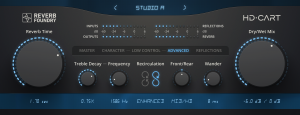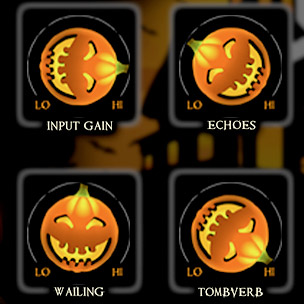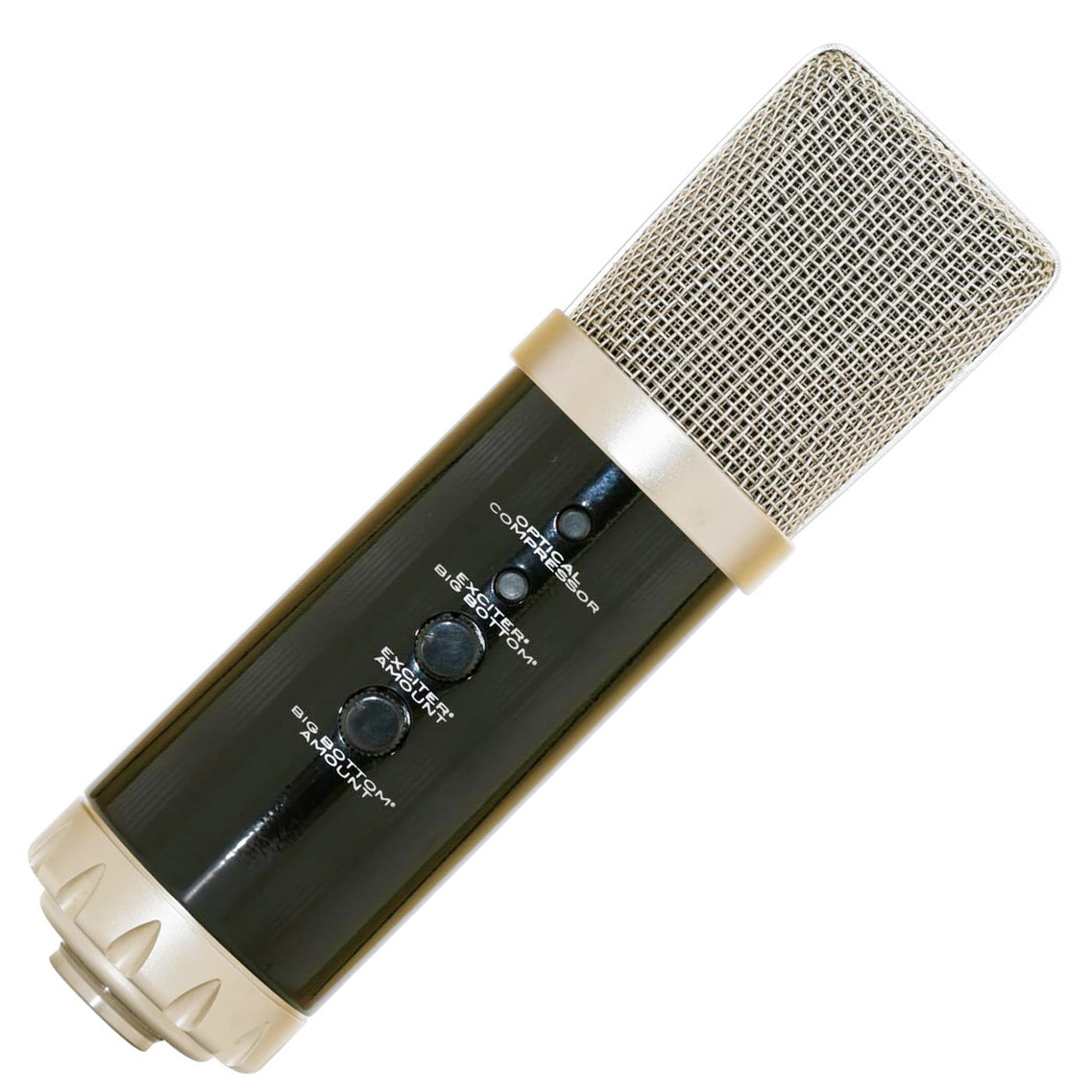
ReverbFoundry “HD Cart” Reverb Plug-In Review
Thursday, January 18th, 2018 | by Czar
![]() I have a rule when it comes to plugins. If it doesn’t do something different from my other plugins, then I don’t want it. So when I gave HD Cart a try, I immediately sought out what makes this reverb different from the rest. I quickly noticed this was no ordinary reverb. After a quick inspection, I realized it had features I’ve never seen on a reverb before, and some features that were completely foreign to me. After reading the product overview from the site, I was excited to see what this could do.
I have a rule when it comes to plugins. If it doesn’t do something different from my other plugins, then I don’t want it. So when I gave HD Cart a try, I immediately sought out what makes this reverb different from the rest. I quickly noticed this was no ordinary reverb. After a quick inspection, I realized it had features I’ve never seen on a reverb before, and some features that were completely foreign to me. After reading the product overview from the site, I was excited to see what this could do.
The HD cart is a reverb plugin from Reverb Foundry modeled after a very popular reverb unit from the mid 80’s: the Lexicon 480L “Digital Effects System,” with the HD Reverb/Surround expansion cartridge.
User Interface
 The first thing I noticed was the plugin’s large GUI. I find I prefer a bigger GUI on plugins; they are easier on the eyes. Looking at the metering, you can see the input and output of the signal, and separate metering for the reverb and early reflections — the latter something I have never seen on a reverb plugin.
The first thing I noticed was the plugin’s large GUI. I find I prefer a bigger GUI on plugins; they are easier on the eyes. Looking at the metering, you can see the input and output of the signal, and separate metering for the reverb and early reflections — the latter something I have never seen on a reverb plugin.
Where some reverb plugins can get intimidating really quickly, I find HD Cart very easy to use. Instead of throwing all its features at you, it handily tucks away its additional features under 5 categories: Master, Character, Low Control, Advanced, and Reflections. Though this plugin offers plenty of control for advanced users, you can get great results by only using the options under the Master section. This makes HD Cart great for novices as well as seasoned engineers.
The Master section offers individual controls for the reverb and early reflections, as well as the rolloff for each. Both rolloffs range from 20 Hz up to 22 kHz.
Under the Character section, you have options to control the pre-delay, diffusion, spread, size, and spin rate. Spread adjust the perceived size of the room. Size adjusts the volume (in terms of dimensions) of the room. The spin rate controls the speed of a form of modulation that is similar to traditional chorusing, but doesn’t introduce the phase effect associated with chorusing.
The Low Control section offers fine-tuning of low end response of the reverb: bass decay rate and rolloff frequency, bass boost level and frequency, and pre-delay time.
Things really get interesting with the Advanced section. Here we have control over the Treble Decay, with individual controls for decay rate and rolloff frequency. The unique “Recirculation” control, set to Enhanced mode by default, determines how the plugin’s two reverbs are combined; this mode produces a “more spacious” reverb than the original Lexicon algorithm. Disabling Enhanced mode creates a more authentic Lexicon/HD sound.
The Front and Rear control determines the balance of the output levels between the master (front reverb) outputs and the rear/surround outputs. To be clear, this control does not move the sound from front to back, but it does affect the relative volume of the rear reflections (which are further controlled by the tools in the Reflections panel).
The Wander control provides a type of modulation that can be used to make the space sound more lively. The Reflections panel allows you to alter the early reflections for the front and rear outputs. Putting all these features together and you have all the options you would expect of a reverb plugin and much more.
Audio Testing
Let’s get into how this sounds. It didn’t take long for me to realize that the HD cart was something special. I first tried it on a vocal I tracked from an artist named A. Rose. Using just the controls in the Master section, I quickly had a vocal that felt more emotional in a way that I’ve only experienced with a select few reverbs. Using the other controls I was able to dial in a flattering reverb space around the vocal. The low boost under the Low Control section helped add a little mass to the reverb tone.
Next I tried HD Cart on a piano from Juliana Parker. Again, HD Cart produced a gratifying sense of space around the piano. The ability to roll off the low and high end came in handy; I was able to shape the reverb to my desired specifications. EQ controls, even if just low and high pass filters, ought to be available in every reverb.
Generally my mixes almost always feature reverb on vocals, piano, and strings, depending on genre. I tend to use different reverbs on each. I use simple reverbs that I can dial in quickly, and reverbs that allow deeper experimentation. I found that HD Cart was able to handle all of my reverb needs. From dialing something in quickly, to really moving knobs around, HD Cart delivered rich sentimental reverb tones.
Overall, this plugin excels at producing lush reverb tones that I had previously only heard with analog reverb units. Many plugins claim to accurately reproduce the same sound of their hardware counterparts. While I can’t compare this to the hardware, I will say I feel it does sound like a hardware reverb unit. For such a complex reverb plugin, I was shocked and how little CPU it used. I tested the VST3 version of HD Cart, on an iMac running MacOS 10 (Sierra).
HD Cart has quickly became my favorite reverb plugin. Using it will have your colleagues asking “what reverb did you use on this?”
When compared to other reverb plugins I use regularly, HD Cart outperformed each of them, each time demonstrating its wider, deeper, more lavish reverb tone. Aside from its impeccable sound, I have to give a virtual “high five” to Reverb Foundry for the impressive GUI. I absolutely love it. Everything is easy to read, and I like how the additional features are categorized.
I highly recommend reading the manual to learn more about the hardware unit and to fully understand all the features available to you with this plugin.
Demonstration and Audio Samples
The HD Cart plugin will cost you $199. A 14-day demo is available. An Ilok 2 or 3 is required. For more information, see ReverbFoundry.com.
Save $150 on HD Cart
Through February 15, you can purchase the HD Cart reverb plug-in at a significant discount in a bundle deal with Roswell Pro Audio microphones. For example, purchase a Roswell Mini K47 for $299, and get HD Cart for $50 — that’s a 75% discount, a savings of $150! See details here.
Posted in Reviews | No Comments »

